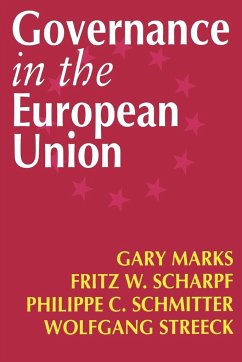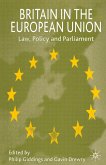A fresh alternative to traditional state-centred analyses of the process of European integration is presented in this book. World-renowned scholars analyze the state in terms of its component parts and clearly show the interaction of subnational, national and supranational actors in the emerging European polity. This `multi-level politics' approach offers a powerful lens through which to view the future course of European integration.
The contributors' empirical exploration of areas such as regional governance, social policy and social movements underpins their broad conceptual and theoretical framework providing significant new insight into European politics.
The contributors' empirical exploration of areas such as regional governance, social policy and social movements underpins their broad conceptual and theoretical framework providing significant new insight into European politics.
`This book is extremely persuasive in demonstrating the value of the multi-level governance approach.... [it] shows the absurdness of theories concerned with the nation-state's obsolescence, but, in turn, makes state-centred theories redundant and rightly so: it leads students of European history, European politics and the dynamics of European governance into an interesting and new direction' - Journal of European Integration History `When Marks, Scharpf, Schmitter and Streeck join forces to write a book on governance in the European Union, there are good reasons to have high expectaions concerning the outcome. All four are well-known international scholars nd major contributors to the literature on European integration and governance. Few quartets would be better qualified to help bring a little more order in a field of research in deep need of new theoretical ideas and concepts, as well as data.... well worth reading. Key issues are raised, and the reader is exposed to a multitude of interesting observations, arguments and theoretical ideas.... they [the authors] have provided important building blocks for further theoretical development' - Public Policy









